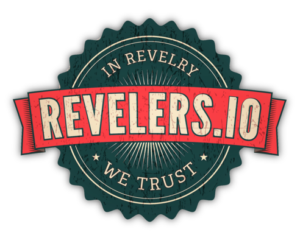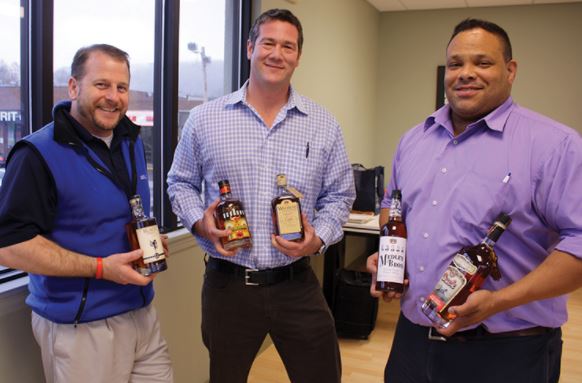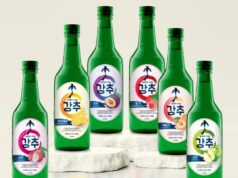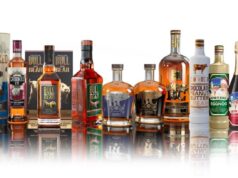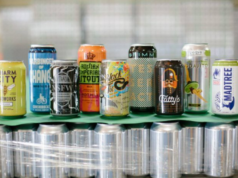FILED AUGUST 1, 2009
Dear Client:
Our profile on Frank-lin Distillers is unlike any interview topic we’ve covered so far. Frank-lin is one of the largest private label spirits manufacturers on the West Coast and averaged about four million cases last year. The company is comprised of four divisions: contract bottling for suppliers of national brands; private label bottling for grocery, drug, mass merchant and club customers; a national supplier of premium branded; and a wholesaler in California and Arizona with a large portfolio of proprietary and non-proprietary products.
Private labels are a sector of the spirits industry that tends to fly under the radar, so we enjoyed speaking with chief Vince Maestri and California chain sales manager Roger Parks to gain insight into that part of the business.
WHAT’S HOT IN PRIVATE LABELS?
Vodka is by far the biggest money maker among private labels, followed by the other big categories: tequila, rum and gin. Interestingly, low-end whiskeys are taking a hit amid the recession while aged whiskeys are starting to make inroads as an emerging category.
“In our industry in the liquor side, 50% of the business is in vodka so each of those corporate brands and each of the chains would probably mimic that number…about 50% of all corporate brands packaged are vodka. There is probably some tequila, some rum, and gin is not too far behind that. Brown goods have taken a little bit of a drop in the corporate brand scenarios: the Canadians, the bourbons and Scotch,” said Vince.
Ultimately, Vince told us that prices on low-end national whiskeys have dropped so low that consumers are opting for those brands instead of private labels. “National brand price points have come down so slow, there’s not much separation” in price from the private labels, he said.
“Vodka has lots of dollars and margin in the competitive arena. Most rectifier bottlers are making more money in tequila, and premium aged whiskeys seem to be having more traction. Consumers are drinking aged products rather than younger products,” said Vince, and he expects the trend to continue.
“In the lower-end of brown spirits I see it going down for awhile but more quality products will resurrect and attract the useful drinker.”
BRANDS CREATED BY FRANK-LIN:
Frank-lin produces items for Skyy Vodka, such as Sky Infusions, along with Christian Brother’s Brandy and some of Gallo’s travel bottles that are not done in their own plant.
Roger clarified further: “Frank-lin produces items and sizes of brands like E&J and Christian Brothers Brandy under contract to national suppliers. Some sizes require special equipment or line configuration. Frank-lin has the capability and capital investment in the equipment to run all industry spirit sizes from 50ml to 1.75 liter.”
Frank-lin also bottles “a lot of start-ups and smaller ventures as well,” noted Vince. Kai Vodka is one example. “It’s a rice based product. The Lychee Tea flavor is doing excellent, growing in the marketplace and holding strong.”
NATIONAL CHAINS
The company also produces “a wide spectrum of value items offered in drug and grocery chains where low cost is a driving factor to premium items,” said Roger. “On the value side of the business Frank-lin bottles brands for large drug retailers like Rite Aid. It is a very low margin, high volume business that requires cost controls at every step of the way,” he continued.
“Our chain business seems to be doing pretty well…we do a little bit of work for Safeway but not the large corporate brands. We did them over 30 years and then we lost a lot of that business to another co-packer,” said Vince.
BUSINESS PERFORMANCE IN THE RECESSION:
“It’s holding up pretty well,” said Vince. “Out of state is doing really well, holding its own and growing. California is flat or down a few percentage points in some segments. The high-end and the restaurant business are off but that seems to be the trend for all wholesalers.”
FUTURE OF THE U.S. PRIVATE LABEL BIZ?
We asked Vince if private labels will ever take off in the U.S. like they have in the U.K. He replied that “everything goes in cycles. For example, blended Scotch in the UK is dropping off on the corporate brand side in favor of aged whiskey, so suppliers are taking what they used to put in the blended market and aging it in wood for a long time…they’re replacing blended with aged Scotches.”
When asked what he thinks is the future of the private label business in the U.S., Vince noted there is less selection, less labels and more aged products nowadays. “But I think it will continue to grow. People will always drink national brands. But if there are alternatives that measure up, it gives chain owners the chance to push their brands…consumers have to walk into their store and pull it off their shelves…it gives chains the opportunity to build a loyal buyer.”
